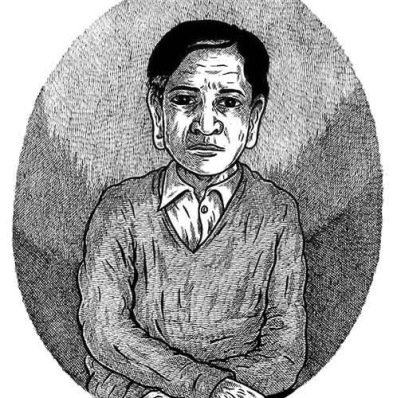 |
| Dog 1 |
A heartfelt thanks to Dennis Lindfors who went out of his way to provide me with the sketches, publishing dates, and most of all the Advanced Reading Copy. And never got irritated by my endless questions.
This Dog Barking by Nicolas Grey / James Farley will be published in India by Harper Collins.
Go green, go green, cheered almost everyone. Green is ecology, he shouted back in crooked and uncomfortable English. And then, to dodge the football thrown at him, he jumped, tried a split in the air, tore off his dark-green track pants from the middle and grasped at the tear as if holding his guts from splitting out. Not a glimmer of embarrassment on his face, he continued to bask in the attention while smilingly ricocheting off various spots within the human-circle around him. The fifth day of this self-discovery program (a term I am using on my own, not used by the organization conducting it) fell on a Sunday and attendees were asked to bring along friends, families, and alike for the early morning session of six a.m. I considered myself lucky to find a rickshaw in the dead of the morning, but soon started doubting when it took me through lanes dominated by dilapidated buildings, around naked toddlers, atop flowing sewers, and amidst the unforgiving, distinctive stench of a slum. The apartment buildings looked frozen in a depressed moment of time, unable to forge ahead on their own, and shamelessly unaware and unappreciative of the ‘bliss’ which was being discovered by more than a hundred upper-middle class ‘souls’ on the adjacent school ground (a radio jockey had expressed on the first day that he was there to enquire about and experience eternal-bliss. The seated teacher, conductor of the whole program, had glanced upwards for a second or two from right behind him. Yeah right, she must have thought).
 |
| Bliss, yeah…bliss! |
If there ever was anything even closely resembling eternal-bliss, then the tenants of those apartment blocks needed it the most. You couldn’t miss them – the pale coloured walls overridden by grayish-black witherings; windows fashioned by sagging cloth-lines which in turn were burdened under garish clothes; and blackened utensils jostling with peeping kids for a whiff of fresh air. Many over-looking balconies and closed-off windows had black iron grills over them, serving as a constant reminder to the middle-class of being safe from thugs, robbers, and thieves; but here in the middle of a slum jungle these grills served only as proof of borrowed thoughts: were they, those who had installed the grills, declaring themselves as rich enough to warrant protection from thieves, robbers, and thugs? Or were they already middle-class?
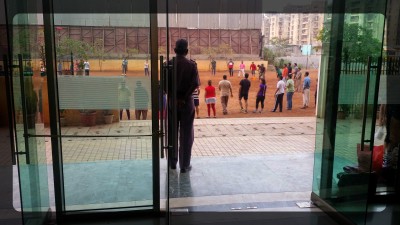 |
| Frisbee anyone? |
In the assembly hall of the school, flowers adorned the floor, a stage, and a framed picture. Flowers were kept on marble tiling, which must have been preferred over regular tiles by the school administration because of it being more appealing. The marble was there only because of its appeal, but it wasn’t enough that day – more of beauty was needed; flowers had to be there in a mix of yellow, red, and pink to make it more beautiful. They had to be brought as offerings. They had to be arranged in circles, large and small, everywhere. They had to be in the sights of everyone, not hidden behind the doors where their existence (but they are dead anyways) wouldn’t mean anything to anyone. They had to be there. The teacher had told us, gently, that all offerings were symbolic, but the participants didn’t have any of it and brought dozens of plucked-out ones – the more they brought the more generous they would appear. And this is the same beauty which is used to adorn the ‘divine’. Beauty then, too, has a purpose: to appear beautiful to us.
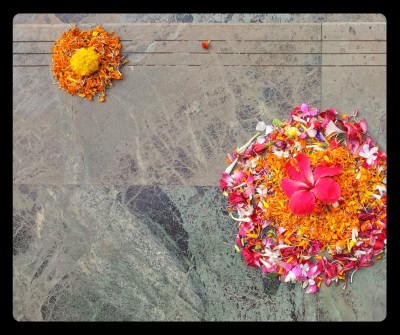 |
| Dead for the cause of Beauty |
Frisbee anyone?, the teacher enthusiastically asked at the beginning to gather everyone. I assumed it was being played just to while time away till the late-comers joined in. But I was wrong. This game was actually a part of the program. And three more were to be played later. I wondered what the radio jockey must be thinking of all this – ‘I am here to find eternal-bliss and they are making me play Frisbee’? I was the last one to join the game, that too after one of the volunteers spotted me fooling around. Ah, straitjackets.
While playing another game wherein a handkerchief had to picked up, or the one picking up had to be touched to win the game, a girl – fairly plump and bespectacled – thrust her pelvic in a mocking gesture to her opponent. She wasn’t playing for herself, her gesture wasn’t for herself, it was for all those who were watching her – that she could scare off anyone by a few thrusts. She lost the game. Braggadocio – 0; humility – 1. (On the second-last day of the program, this very girl volunteered to share her experiences and while trying to explain her initial skepticism of such programs, she described herself as an Existentialist and then went on to give such a warped definition of the term that Beauvoir would have turned her back to Sartre in the grave).
As the program drew to a close on the seventh day, I felt happier, at peace with myself, and brimming with positivity. I was ready to whisk away all worries with laughter and walk towards happiness, one moment at a time. I didn’t know what it did to the believers – maybe they found their eternal-bliss or became enlightened. I tried to keep my inhibitions away, but couldn’t exactly succeed. At the same time, however, a lot of them would have attributed their well-being and experiences to some divine force out there, trying to reach out to them and help them. Most of them had already taken charge of their ‘destinies’ by accepting blame for events from their past when they couldn’t have their way with their families, friends, or with themselves – many of these individuals had said, “I was responsible for this not happening” or “that not working out”. I was nobody to deny their experiences or beliefs. This non-interference on my part also stemmed from a realization that I really didn’t know much and would never know much. But what about this pendulum of life oscillating between sadness and happiness? What is this thing called life that becomes happy and sad? And what is this happiness and sadness to begin with? When would the I, Me and Myself realize their folly of being I, Me and Myself?
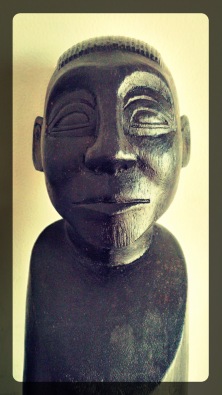 |
| JK look-alike. Price: Rs. 280/- |
However, it is No More Questions: The Final Travels of U.G. Krishnamurti by Louis Brawley, with all its honesty, which brings out the daily underpinnings of UG’s life – the endless car trips in Italy, Germany, and Switzerland; the constant and ceaseless vitriol that he spewed on all around him; the repetitive drawl of old man disproving everything. Brawley’s version is easier to relate to compared to Bhatt’s. The rendering of UG’s Swan Song and 108 Money Maxims (noted down by Claire Nettleton) are two most important things you would want to look at in this book. Brawley’s putting aside whatever he was onto in his life just to while time away with this irresistible magnet and trying often to repel himself from the gutter of void he felt with him underline the anxieties anyone would have within himself when on a mission to achieve and do nothing.
You would reach the border of nihilism after reading UG. So at a time when our generation is the “most comfortable generation ever“3, where is happiness? Still hiding somewhere amidst the bushes of sadness? The dog will keep barking, barking, and barking – but it is you who has to break the glass of your windows to be awakened by him. It is you who has to let his sharp, incising tongue in your psyche. With clarity of thought as of UG, nothing seems difficult or muddled. This Dog Barking, a graphic novel on UG’s life, by Grey and Farley comes at a time when the current generation just can’t find a way out of the depths of gloom. But so has every generation till now. They feel it is only their gloom which has existed and is unreleasable. As each new one builds upon the past one for progress, development, and happiness, it does so inevitably for misery and dejection as well.
“There is no beginning and no end. Nothing is immutable, everything changes. That thing which does not come into being does not die“. So begins one of the most iconic movies on the circuit: Why has Bodhi Dharma left for the East. The young Kibon in the movie rues about what he has left behind to become a monk and has thoughts about returning to his city-life and taking care of his blind mother. So the monk wants to leave the peaceful existence of the mountains and go to the hustle-bustle of the city, and the city dwellers want the peace of the mountains by, well, playing frisbee. Sri M’s Apprenticed to a Himalayan Master chronicles his own experiences of faith, and what and where all it led him to. Some of his experiences are so far-fetched that one starts believing in UG’s acid-head theory. Om Swami, in his If Truth Be Told, on the other hand doesn’t have as many experiences to recount as Sri M, but in the end he too experiences what UG would term as continual. If to hear a never-before-heard-sweet-voice calling out your name is not continual, then what is?
This Dog Barking begins with the creation of Theosophical Society by Helena Blavatsky and Henry Steel Olcott. The Society, through Annie Besant and CW Leadbeater, chose Jiddu Krishnamurti as the leader to guide human civilization. Later, JK turned his back to them and started out on his own, stating that “the truth is a pathless land, you cannot approach it from any path whatsoever“. But UG’s maternal grandfather, TG Krishnamurti, was already impressed by JK. Otherwise too TGK was a deeply religious person and UG’s early years were spent reading Upanishads, Vedas, and other religious scriptures. UG stayed at the Society while studying at the University of Madras but was discontent with everything that was being fed to him, just about nothing made sense to him. His encounters with Swami Sivananda, Ramana Maharishi, and others, reeked of his disbelief in their beliefs. He ended up marrying Kusuma and had three children with her, while losing all will-power to do anything in life: What to do? Where to go? His marriage terminated with dire results for Kusuma, who became depressed and underwent ECT, and soon died due to a neck injury. UG became a vagabond in the U.S. and lived off the streets with some help from others. Then came the ‘calamity’, which changed his perception of the world, resulted in physical mutations in his body, and freed him of thought. He landed at Indian Embassy in Switzerland, penniless, hoping for a one-way ticket to India where he would at least have people keeping bananas at his feet if he were to just sit under some banyan tree. In came Valentine de Kervan, who became a friend and set up a chalet for him in Saanen, Switzerland.
It is this chalet that forms the core the book, where UG expounds his views – or rather barks like a dog at whom stones have been thrown – to Douglas, who has come there either to make the world a better place, or to be compassionate, or to understand himself, or to free himself of illusion, or to realise purpose of life. UG annihilates all that. He disrobes Douglas of any pretensions of compassion he might have towards mankind and states that there is nothing to understand. That there is no ‘I’ in him and he is just a tool of furtherance for the society, culture, art, or whatever. Even if he wants to take help of UG to find a way out, he won’t be able to help him because there is no problem at all and nobody out there can help him. UG’s prophetic (he would have hated that word) harking of discontinuity and the flow of time as disjointed moments is the helping hand which not just a skeptic, but everyone, needs. The graphic novel is divided in three parts: part-I covers UG’s early years till his watching a strip tease at a joint in Paris (instead of hearing JK speak at a lecture); part-II is till his acid-head theory; and part-III ends with UG telling Douglas that he can’t give him courage…to stand alone. Part-II gets confusing because of UG’s utterances about what he went through in ‘calamity’ and the strange, if not completely unbelievable, transformations he describes. The epilogue, or lets call it the beginning of the end, talks about the body being immortal – not in the sense we interpret ‘immortal’, but in the way that it continues to feed others endlessly even after death. Nothing here is lost, nothing comes to an end.
 |
| “Be miserable and die in your misery” – UG |
Nicolas’ hand-drawn sketches are mesmerising – some of my favorites are: UG amidst a whirlpool during ‘calamity’; UG explaining slow-motion and suddenly becomes hydra-handed; the ‘world-mind’ sketch depicting hundreds of people from various religions, beliefs, and nationalities; and 11-year old Blavatsky reading occultism and magic books in her grandmother’s library. The most momentous yet ephemeral encounter depicted is of UG meeting Ramana Maharishi: Ramana answering a question of UG, then both of them depicted individually in multiple frames, with many close-ups of their faces and their eyes having unquestionably a look doubting the other and a belief of superiority in one’s self. A Pyrrhic war of egos, I must say. Farley’s carefully selected text concisely sums up UG’s life in a subtle and helping manner – helping because lot of UG’s words don’t make sense at all (like when he wonders whether a tomato soup is a tomato soup, or when he asks if his body is actually his, or when mutters something about taste of food being so singular that he could sense each element which the food was made of). His one-page brief on Advaita Vedanta (Non-Dualism) cannot be missed. Towards the end, when UG’s views have gained enough momentum to overpower you, dawns the sudden realization that everyone, like Douglas, is alone in this world and must start out in his / her direction of endeavor, and it hits hard, especially so after the harking, barking, and shouting of UG. This graphic novel is a collector’s edition and deserves a place in one’s five-foot bookshelf.
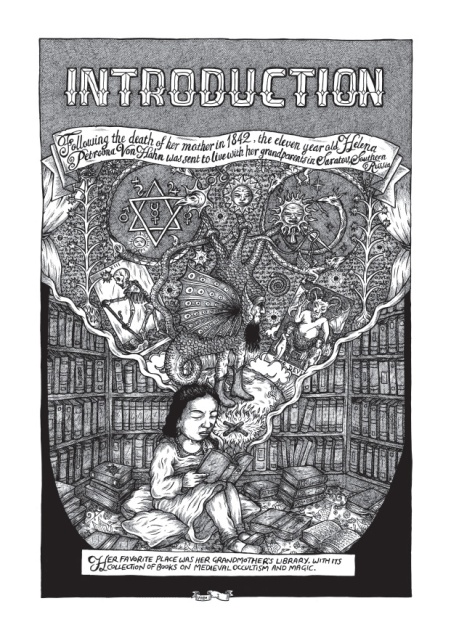 |
| Young Blavatsky in her grandmother’s library (source: This Dog Barking) |
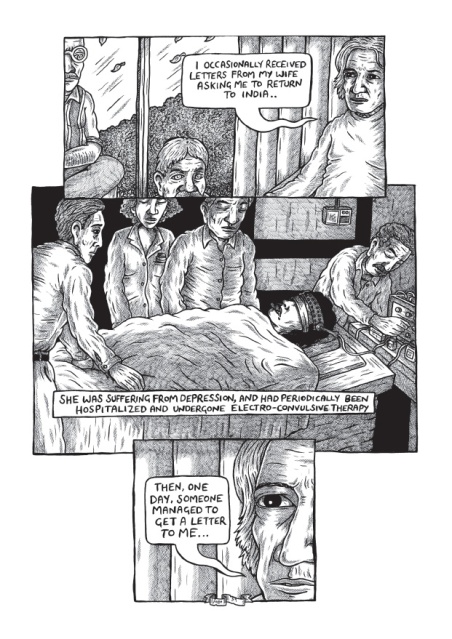 |
| UG’s wife undergoing ECT (source: This Dog Barking) |
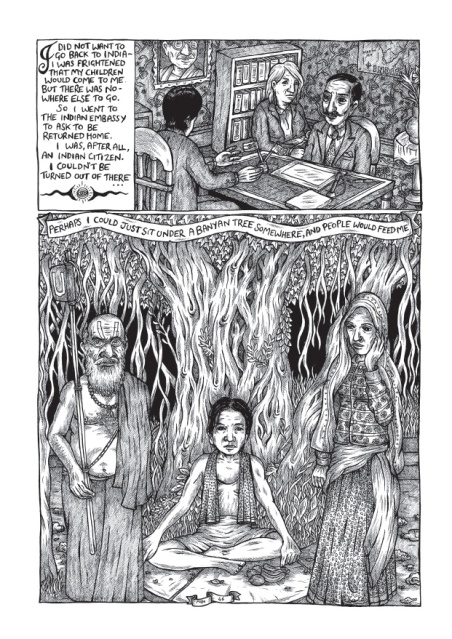 |
| UG wishing for bananas (source: This Dog Barking) |
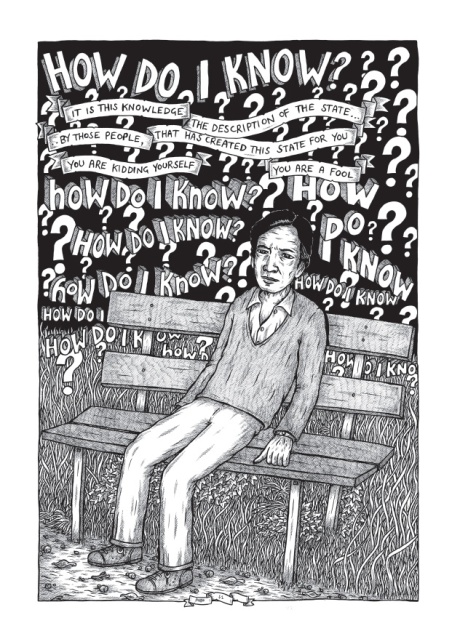 |
| The bench where Calamity happened (source: This Dog Barking) |
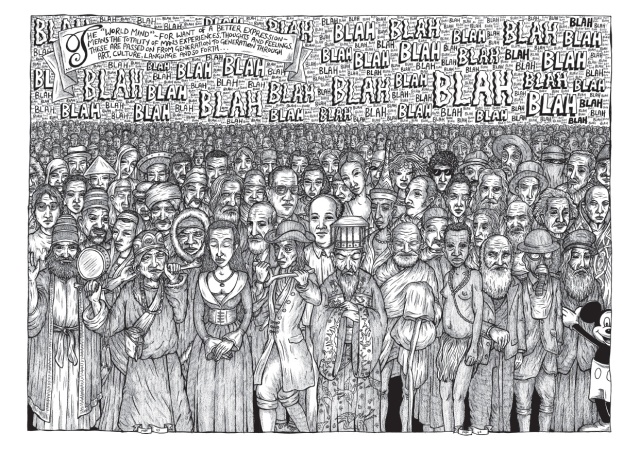 |
| World-Mind (source: This Dog Barking) |
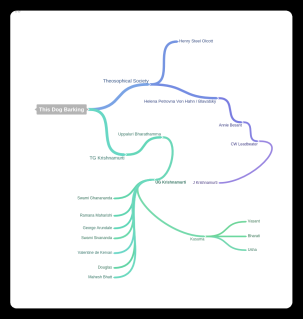 |
| A concise mind-map of the characters |
Tweets by @thisdogbarking !function(d,s,id){var js,fjs=d.getElementsByTagName(s)[0],p=/^http:/.test(d.location)?’http’:’https’;if(!d.getElementById(id)){js=d.createElement(s);js.id=id;js.src=p+”://platform.twitter.com/widgets.js”;fjs.parentNode.insertBefore(js,fjs);}}(document,”script”,”twitter-wjs”);
References:
-1 – Source: thisdogbarking.wordpress.com
-2 – Sadhguru’s words of wisdom
-3 – Explained lucidly by the teacher during the 7-day program
